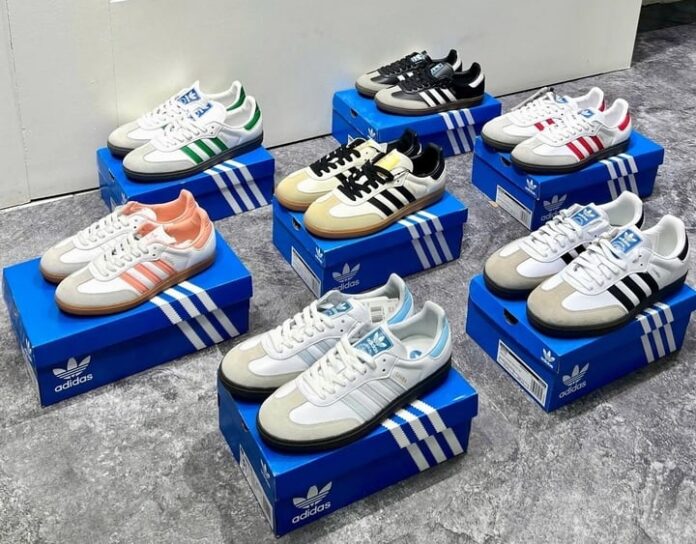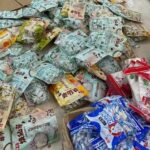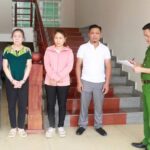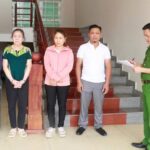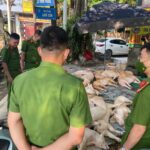Fake goods are rampant
Posing as a customer looking to buy sports shoes, we visited a store on Cach Mang Thang Tam Street in District 3. Inside, there was an array of products bearing well-known brands such as Nike and Adidas, with prices ranging from just VND 400,000 to VND 850,000 per pair.
A pair of Adidas Samba shoes was priced at only VND 625,000, while the official Adidas website sells them for VND 2.7 million. This shop also offered Adidas Ultraboost shoes for VND 690,000, while the authentic price is VND 4.9 million.
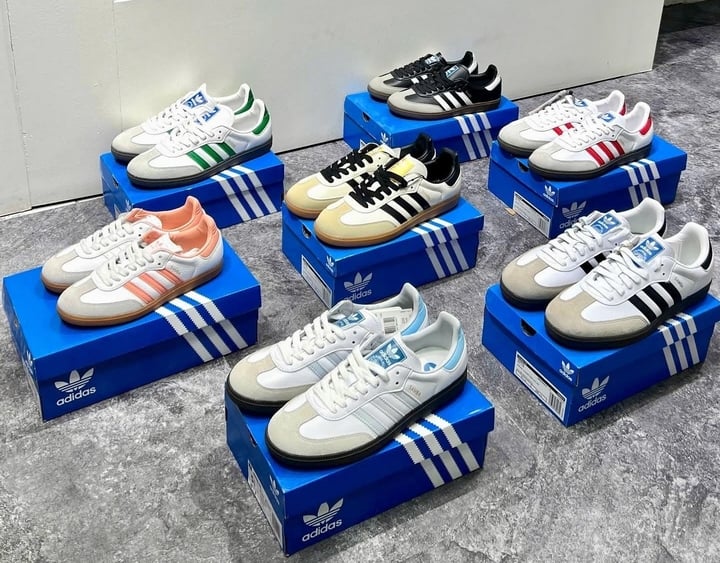
Fake goods of famous brands are sold at very cheap prices. (Photo: Dai Viet)
According to the store staff, these are counterfeit Adidas shoes. Every day, the store sells tens of pairs of shoes to customers. In addition to local buyers, many customers from neighboring provinces also place orders for these fake shoes.
“Many customers want cheap prices but the designs to be similar to the authentic ones, so our shoes sell very well,” said a store employee.
Besides shoes, many fashion stores in District 3 and District 10 also sell clothing items that are counterfeits of famous brands such as Burberry, Gucci, and Louis Vuitton.
The fake Burberry shirts are called “super grade” – meaning they are exact replicas of the genuine product – and are sold for only VND 1-2 million each. In contrast, the authentic shirts are priced at no less than VND 7 million each.
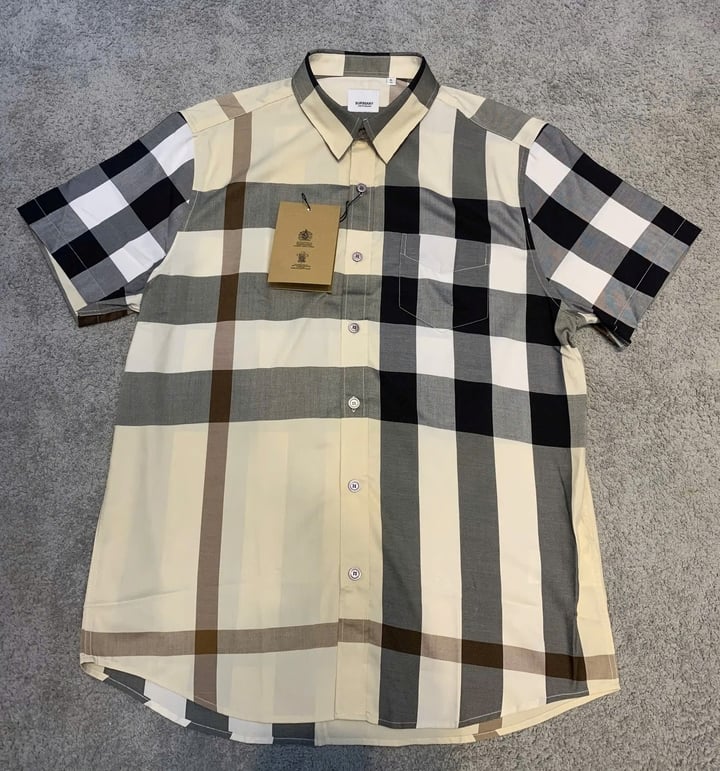
A fake Burberry shirt being sold for VND 1.2 million. (Photo: Dai Viet)
Other counterfeit products such as watches, sunglasses, hats, and phone accessories are also openly displayed for sale on streets like Nguyen Trai (District 5), Ba Thang Hai (District 10), and Quang Trung (Go Vap). However, these selling points have existed for many years without being addressed.
At Ben Thanh Market (District 1), while posing as tourists, VTC News reporters received enthusiastic offers for glasses bearing famous brand names. A pair of glasses labeled “Versace”, originally priced at VND 1.2 million, was quickly discounted to VND 600,000 if purchased immediately.
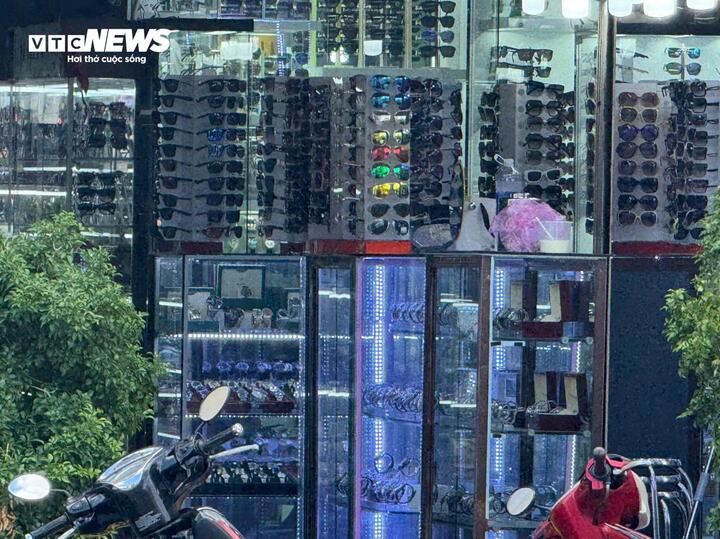
Glasses and watches imitating famous brands are displayed and sold at cheap prices at Ben Thanh Market.
When asked if they were genuine, the seller replied without hesitation: “You can tell by looking at them; how can branded goods be so cheap? They are grade-A fakes, looking exactly the same. We sell them to foreign tourists all the time!”
“If fake goods are banned, how can this market survive? Tourists come to this market to find imitation goods that look like the real deal but are cheap. Who can afford to sell authentic products? We have to pay for rent, employees, security fees, “, a watch trader frankly admitted.
The trader also shared that the sale of “grade-A and grade-B” goods has existed for a long time. Before the COVID-19 pandemic, they thrived due to the large number of international tourists. However, after the pandemic, the number of customers decreased significantly, and strict inspections by authorities put many traders in a difficult situation.
“Now, I hear that the tax exemption will be removed, and we will have to declare our income. But how can we declare when we don’t have any invoices or receipts? All our goods are ‘hand-carried’ or imported from China,” the trader said.
In the inner area of the market, where various bags bearing famous brands such as LV, Chanel, and Dior are displayed, the traders also spoke candidly. Posing as customers, we visited a stall in the market center, where fake goods were attractively displayed.
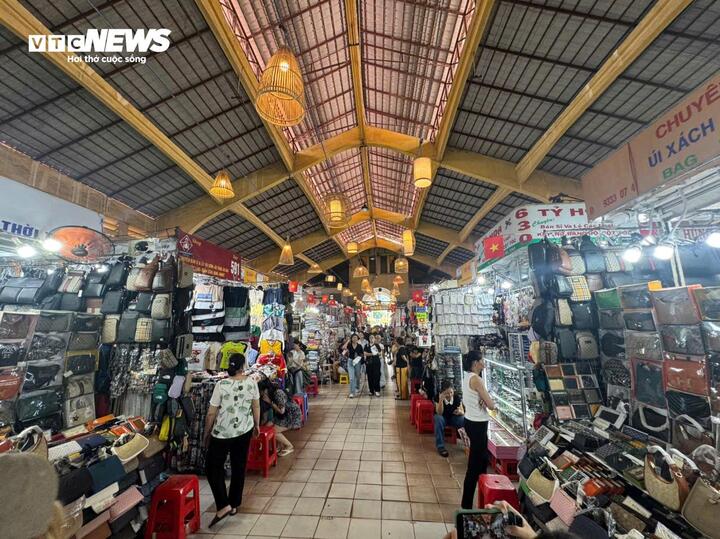
Bags imitating famous brands are freely sold at Ben Thanh Market.
“The goods here are grade-A fakes. If you want the real brand-name products, I have them, but there are many types. The same model can cost VND 500,000 or over VND 1 million, depending on the quality,” a trader said.
According to the trader, the goods are ordered online or obtained from familiar sources: “They are counterfeits, and we buy and resell them. We’ve been doing this for a long time, so we’re used to it. If you ask us to sell authentic products, we don’t know where to get them or how to afford them.”
This trader also shared that their customer base consists mainly of ordinary people or tourists looking for souvenirs. “The bags priced at over VND 1 million are already very expensive. If we sell them at higher prices, no one will buy them,” they added.
Expressing concern about legal issues, the trader hesitated to admit: “Of course, we are worried. Recently, big brands have been very strict about these issues. Many places have been inspected and their goods confiscated. We are also afraid of the same fate. But we’ve been doing this for a long time, and we don’t know what other business to switch to.”
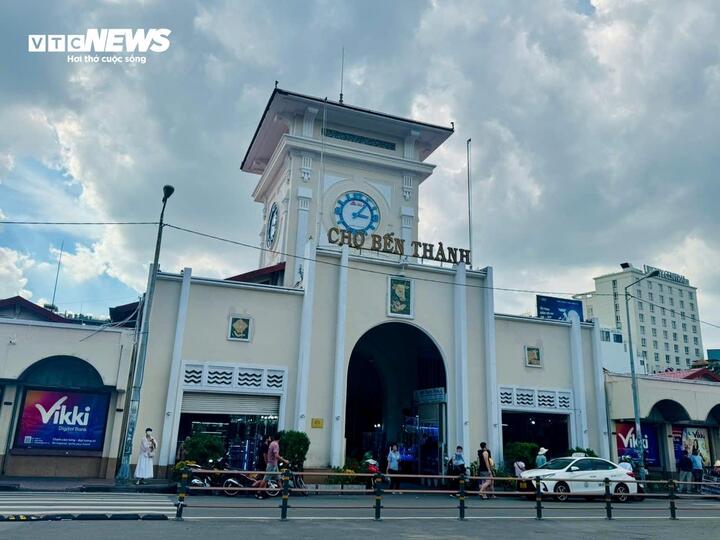
Ben Thanh Market, District 1, Ho Chi Minh City.
Market Management Board speaks out
Regarding the situation of counterfeit goods being sold at Ben Thanh Market, the Market Management Board affirmed that they are closely coordinating with functional forces to inspect and handle the issue and pledged not to cover up or tolerate any violations.
In response to VTC News, Ms. Nguyen Thi Phuong Lan, Deputy Head of Ben Thanh Market Management Board, said that they regularly organize periodic and surprise inspections at the stalls. If any violations related to the sale of counterfeit or unclear origin goods are discovered, the Board will make a record and handle them according to the regulations.
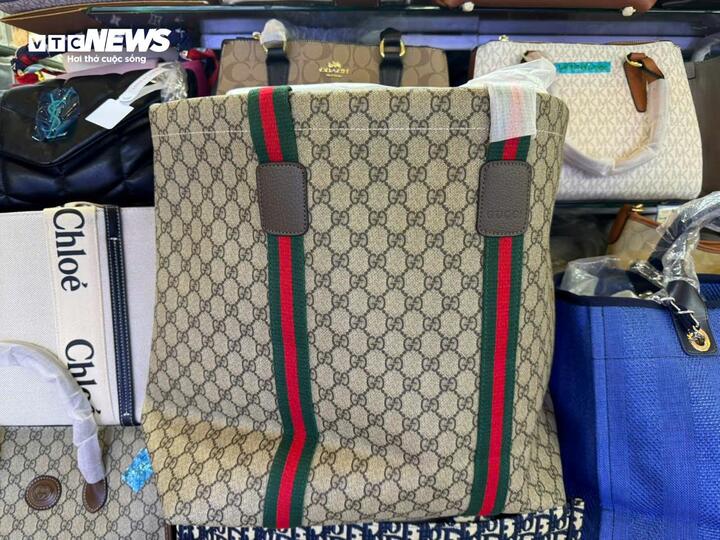
Fake Gucci bags being sold for VND 300,000 at Ben Thanh Market.
“The highest level of punishment we can impose is to suspend business activities for 1 to 7 days, depending on the severity of the violation. However, we do not have the authority to confiscate goods, so we will coordinate with the market management force to handle them according to the law,” Ms. Lan said.
According to Ms. Lan, at the beginning of the year, all traders signed a commitment not to trade in violating goods. At the same time, the market’s inspection team and security team regularly remind and monitor business activities at each stall. Despite these efforts, she admitted that some traders still try to “evade the law.”
“When the inspection team arrives, many traders immediately hide the suspected violating products. However, if we find specific evidence, we will resolutely handle it without exception,” she stated.
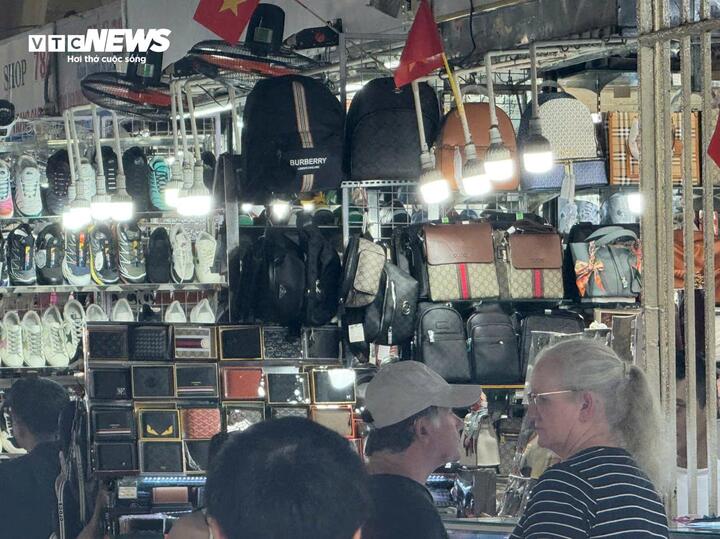
Fake goods are openly sold at Ben Thanh Market.
Regarding the verification of the authenticity of the products, Ms. Lan stated that this is a specialized task under the authority of the functional forces and brand representatives.
“There have been times when major brands have cooperated in inspections, but they only confirmed that the products were not manufactured by their company, without clearly stating that they were fakes. The Market Management Board does not have the expertise to conclude on this matter,” Ms. Lan shared.
She added that although they have been promoting and reminding traders and customers, some buyers – especially tourists – still seek to purchase goods that resemble famous brands at low prices. This situation indirectly encourages the sale of counterfeit and imitation goods.
Enterprises struggle with counterfeits
In an interview with VTC News, Mr. Nguyen Ngoc Ty, Executive Director of Non Son brand, said that the company has been facing the issue of counterfeits for many years, especially fake Non Son helmets.
These fake helmets, which are of inferior quality, are sold at prices ranging from VND 150,000 to VND 200,000 each. In contrast, the authentic helmets are priced at VND 325,000 and above.
According to Mr. Ty, in the past, Vietnam did not pay much attention to intellectual property issues. However, in recent years, the National Assembly and the Government have issued strict regulations on intellectual property, which has helped businesses in their fight against counterfeits.
Previously, when a facility for producing fake goods was discovered, the representative of the facility would only be administratively fined. As a result, these facilities boldly continued their operations due to the high profits. However, nowadays, producing fake goods is considered a criminal offense.
From 2012 to 2025, Non Son has cooperated with authorities to uncover many large-scale fake helmet production cases, including a case in Ho Chi Minh City with a value of nearly VND 38 billion.
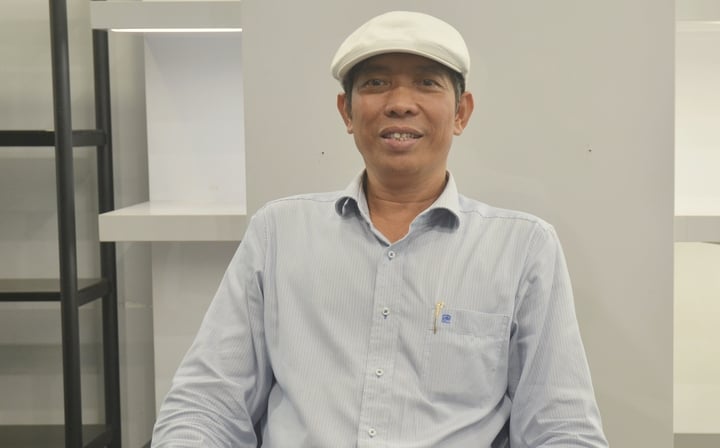
Mr. Nguyen Ngoc Ty, Executive Director of Non Son brand. (Photo: Dai Viet)
Mr. Ty shared that when they discover a facility producing fake Non Son helmets, company employees will warn the facility’s owner and provide a document explaining the violations and recommending that they stop the production of fake goods. However, most of these facilities ignore the warnings and continue their highly profitable illegal activities, leading to unfortunate consequences.
“A fake helmet is sold at a price similar to that of a genuine one, so they make a lot of money. They sell fakes but earn real money. It’s a super-profitable business, so everyone is tempted,” Mr. Ty said.
He also mentioned that fake Non Son products are also sold on websites and e-commerce platforms. The prices of these fake goods are about 50% lower than the authentic ones, misleading consumers into thinking they are genuine products on sale. However, these are 100% counterfeits. The company has sent warning letters to these platforms to address the issue.
A representative of Adidas Vietnam shared that over the years, the brand has cooperated with authorities to uncover tens of thousands of fake Adidas products.
Many facilities producing and trading fake goods in Ho Chi Minh City, Hanoi, Phu Tho, Dak Lak, Dong Thap, and other provinces have been penalized. However, the problem of Adidas counterfeits remains pervasive.
At the recent annual general meeting of Vinamilk in 2025, Ms. Mai Kieu Lien, CEO of Vinamilk, expressed her pleasure that consumers and honest businesses have been protected by the authorities’ discovery of shocking cases of fake milk. Vinamilk is also proactively and actively fighting against counterfeits and imitations on multiple fronts.
Recently, the National Steering Committee for the Prevention and Combat of Goods Smuggling, Trade Fraud, and Counterfeit Goods (Steering Committee 389) reported on the inspection and handling of violations in the first five months of the year. Accordingly, more than 34,000 cases of violations related to smuggling, trade fraud, and counterfeiting were detected nationwide. These included over 8,200 cases of smuggling and trading prohibited and restricted goods and over 25,000 cases of commercial fraud.
Notably, in the first five months, there were 1,100 cases related to counterfeiting and intellectual property infringement in the fields of medicine, milk, and dietary supplements. These cases not only caused public outrage but also directly threatened the health of the community, especially women, the elderly, and children.
The Magic Touch: Transforming Tons of Chinese Candy into Japanese Treats
“A savvy entrepreneur, Nguyen Viet Cuong, identified a gap in the Hanoi market for foreign-sourced products. With a keen eye for opportunity, Cuong began sourcing unidentified raw materials and repackaging them with Japanese and Korean labels to meet the demands of discerning customers.”
The Dark Side of the Food Industry: Exposing the Dangers of Contaminated Produce and the Need for Stronger Regulations
“Speaking to Tien Phong, a renowned expert in commerce and market management conceded that there is often a game of passing the buck between various units and ministries when issues pertaining to their domains surface. In light of the recent exposés of numerous incidents involving tainted food, counterfeit medicines, and fake milk, it is indisputable that the Ministry of Health bears the primary responsibility.”

